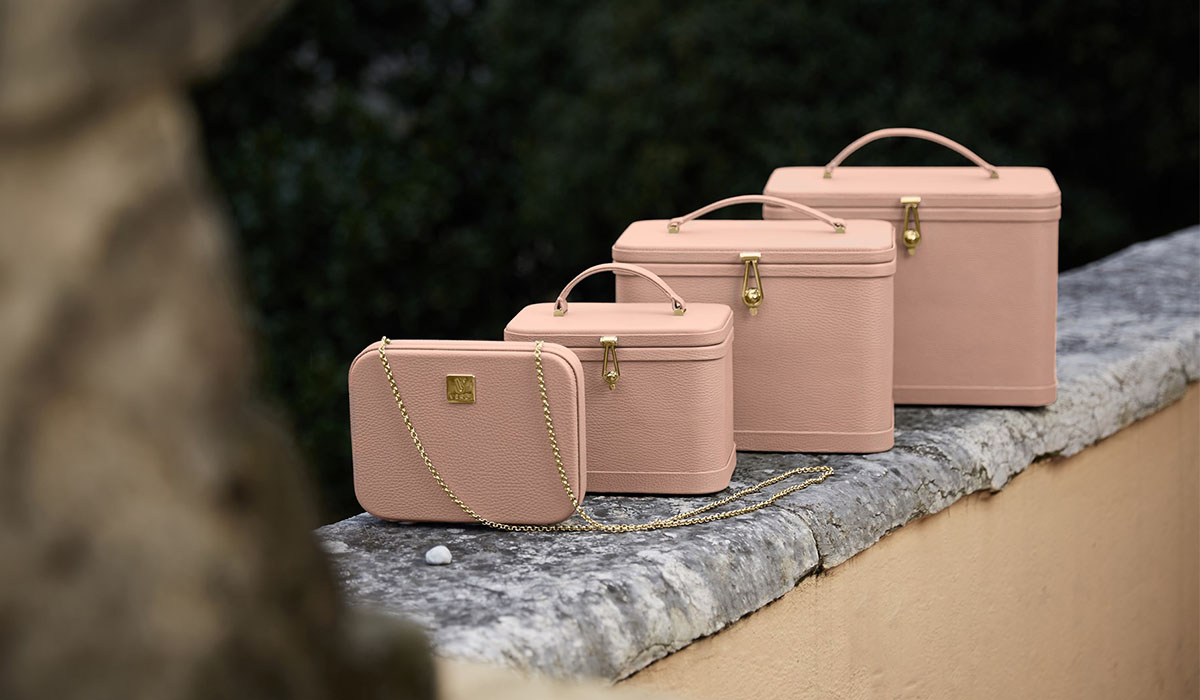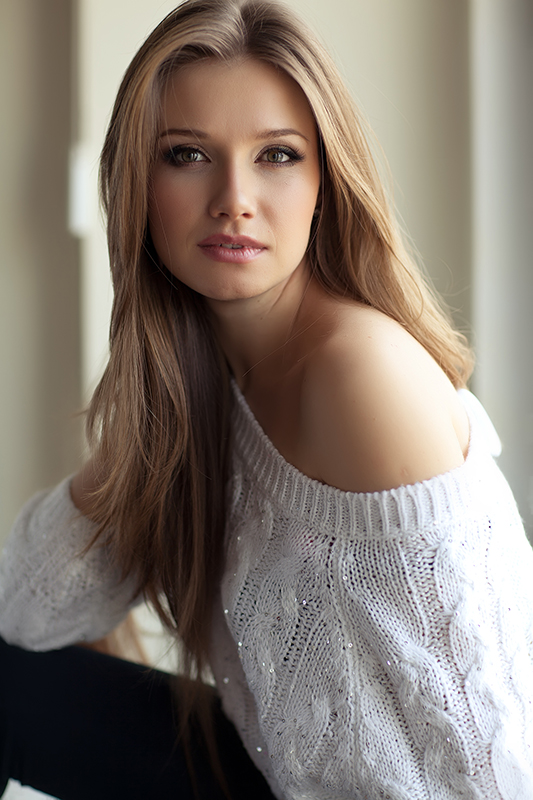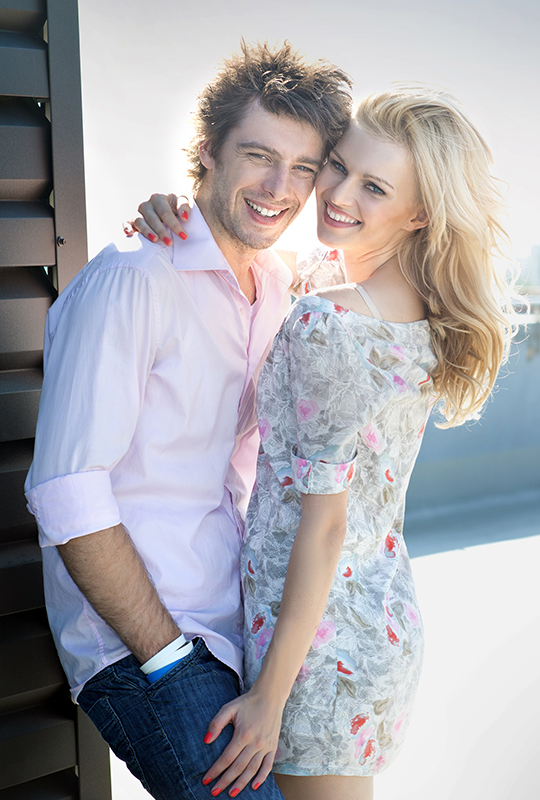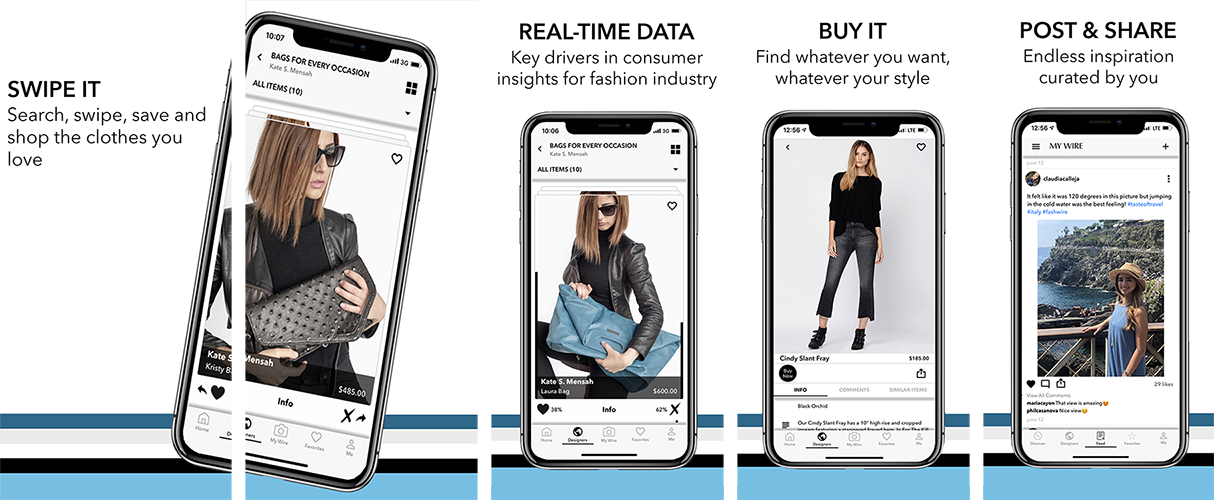
FASHTALKS WITH ATELIER VERDI
Designer Interview
Sep 20, 2022 01:03 PM
When did you know you wanted to become a designer?
It’s hard to put a date on it, but it was early on in my career. I’ve worked in production for over 30 years, starting out in fast fashion. That was a great education, but I knew that I wanted to start something that took a sustainable approach, with pieces that were designed to buy and keep, without compromise. So, in the early 2000s I started my consultancy business and began to work with a lot of brands that shared my philosophy, both start-ups and established names. Atelier Verdi is the manifestation of that passion for design, but I’m also proud of my contribution to the brands that I have worked with.
What is your earliest design memory for your brand?
Most of my career has necessitated a great deal of travelling, so the idea of a high quality, functional vanity case for travelers has been bubbling away in my mind for years. But it wasn’t until I set some time aside from my consultancy work four years ago that I sat down with specialist craftsmen I've collaborated with for many years and put my ideas down on paper.
What made you want to design bags?
It was a natural starting point for me because I always had to compromise on form or function to carry my skincare & beauty essentials overseas.
What inspired you to name your brand?
I’m lucky that my family name is synonymous with Italy and the arts. With classic Italian music from my father’s heritage and tradition of Italian fashion through great aunts who had silk mills in Como, I wanted to incorporate Verdi into the brand to highlight my contribution.
“Respecting our environment, communities and suppliers is the fundamental core of Atelier Verdi and forms the cornerstone of our sustainability credentials.”
Where do you find inspiration?
My mother has always been the primary source of inspiration for me. She lived in Italy in the 1950s and 1960s and has always maintained that classic, timeless elegance about her. I love that she still has dresses, knits, hats and shoes from her time in Italy because back then, everything was made to order by local artisans and they were made so well and with such style that they still look beautiful and relevant today.
I also love to explore early 20th century glamour, both through old movies as well as the little vintage boutiques that you find hidden away in a lot of towns and villages across Italy.
I’ve always done what I can to see as much of the world as possible, both professionally and privately, and experiencing so many different cultures and styles is a constant source of ideas. It doesn’t have to be anywhere far flung or exotic though, inspiration can be found wherever you are.
What is your favorite part about designing?
Collaborating with skilled craftsmen to create something that didn’t exist before. Good design is a process that starts with an initial idea, a first sketch, but evolves through passion and dialogue with a team of equally passionate collaborators.
How would you describe your personal style?
I love to mix old and new, so I often pair classic vintage with essential pieces from my wardrobe. Luxurious accessories such as shoes and jewelry always play an important part of my outfit.
What role does sustainability play in Atelier Verdi?
Respecting our environment, communities and suppliers is the fundamental core of Atelier Verdi and forms the cornerstone of our sustainability credentials. We want to deliver a product that offers multi-generational longevity and minimizes environmental impact. Our leathers are fully traceable and are derived solely as a by-product of the food industry, with residues recycled. Our tannery is a certified member of the Leather Working Group and the Zero Discharge of Hazardous Chemicals (ZDHC) program, and we only produce on-demand, which means we don’t waste raw materials by overproducing.
What do you envision for the future of your brand?
We’ll be expanding our product range but using a slow and considered approach. In line with our sustainability ethos, we don’t want to offer a huge selection of pieces, but instead offer carefully curated collections that offer exclusive luxury while highlighting a mindset of limited production and consumption.
Our early focus has been on solidifying our online direct-to-consumer channels but going forward we’re looking to be present in some select luxury multi-brand stores. We’ve made a start in that respect, with our pieces currently offered in a beautiful Tokyo & Nagoya store, and we plan to expand on that partnership soon. In the longer-term, we want to have a presence in key fashion hubs around the world and to feature in key global publications.
Do you have a favorite piece that you have designed?
I love our hero product - the Livia vanity case. It’s a piece I’d been imagining for years and something that I have with me wherever I go. I use the small Livia as an everyday bag, and I wish I’d had one of the larger sizes back when I was travelling a lot more.
It’s the first piece I designed for the brand and producing it took on a new perspective for me. I’d always produced for other brands so sitting down in this small family-run workshop in Tuscany and working through my own designs and production steps makes it special. There are so many small details that go into making it the perfect version of itself, taking several days to complete, and all completely by hand.
I named it after the first Roman empress, Livia Drusilla. She defied convention to become a powerful and influential figure, as well as fiercely loyal, and that’s how I like to think of our Livia vanity.
“We have a unique design, and every piece is completely made by hand.”
What sets your brand apart from the rest?
We don’t compromise on the quality of materials that we use. Our calf leather is the best available, hardware is gold-plated brass which is a level of quality rarely found in the industry. We have a unique design, and every piece is completely made by hand. Our cashmere is lab tested to ensure that it’s 100% pure and doesn’t contain any added wool blends, cotton or synthetics, so the softness and insulating properties are exactly how they should be. All our sweaters are finished with hand-linking and our cardigan uses the finest 18-gauge cashmere available, which can only be worked on by skilled craftspeople. Our slow fashion credentials also set us apart.
What were some hurdles you had to overcome in your business?
There were so many challenges to get the Livia exactly how we wanted it. Making it light enough, making it high enough, creating a rounded edge, ensuring the lid remained balanced while using only one central buckle. And after we’d found solutions to these challenges, we launched at the height of the Covid pandemic! That of course brought a whole list of problems, as it did for everyone, from production challenges to logistical delays and getting our name out there when there were more important things people were focusing on. But coming through the other side relatively unscathed just makes me even more proud of what we’ve achieved!
What is one thing you look for when interviewing a potential candidate for your company?
A shared passion for what we’re trying to accomplish at Atelier Verdi.
What are your greatest strengths and weaknesses?
I’m happy, passionate and dedicated in what I do and I’m a real stickler for details. All traits that have served me well in this industry.
I’m also a people person, so being able to create and maintain relationships with suppliers and craftsmen over the years has been fundamental in getting Atelier Verdi off the ground.
I’m not a good administrator though. Thankfully, I have brilliant people around me who lift that burden.
Do you find it difficult to have a brand based in London? What are the perks versus the challenges?
I love London. It’s a design and fashion hub and a perfect melting pot of cultures and styles. It’s also a networking paradise.
Brexit has made the administration side of things more challenging, and it took a while to understand the new way of working.




